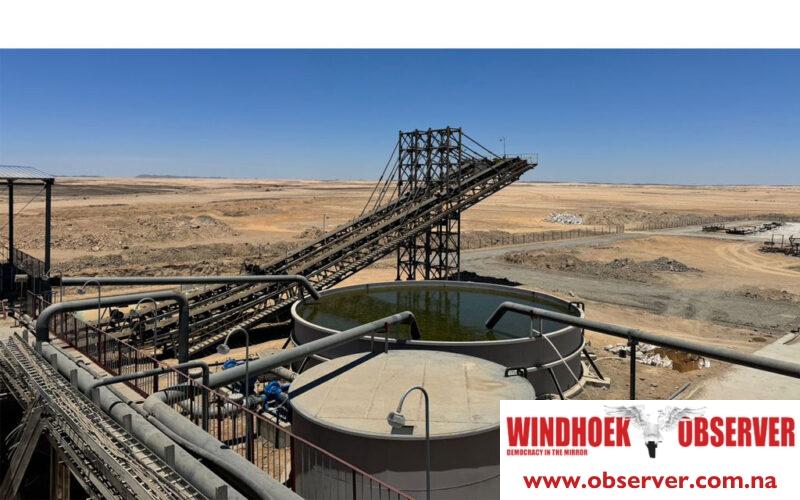Ester Mbathera
Xinfeng Investments has announced the commissioning of its lithium processing plant nine months after the government banned the export of unprocessed crushed lithium ore, cobalt, manganese, graphite, and rare earth metals and elements.
Aqisha Jooste, the company spokesperson, confirmed this to the Windhoek Observer on Thursday.
The plant is expected to start operations in June.
“The plant promises to significantly enhance the lithium supply chain and bolster economic growth within the region. The new facility boasts a substantial processing capacity of 1 million tonnes of concentrated lithium annually. This marks a significant step in meeting the growing global demand for lithium, essential for energy storage and battery manufacturing,” she said.
Jooste added that the company will also be offering processing services to other mines in the Erongo region.
Critics fear that Xinfeng will create a monopoly since they are the only ones with a processing plant. Miners in the sector will have to sell their ore at a price decided upon by Xinfeng or risk their ore collecting dust in Namibia because it cannot be exported in raw form.
Jooste explained that details on the pricing and contractual arrangements are being finalised, with several long-term agreements nearing completion.
“Our goal is to support and enhance the local mining ecosystem, providing advanced processing solutions that benefit all stakeholders,” said Jooste.
She added that the company has implemented rigorous protocols to ensure that production meets the highest standards of environmental stewardship and worker safety.
“The plant features cutting-edge technology to minimise ecological impact and maintain a safe working environment. The technology used is top of the range, one of only three on the continent (dense medium), to limit the use of water.”
According to Jooste, with ongoing training programs currently preparing over 80 trainees for various operational roles, the plant is expected to employ 200 people once it reaches full operational capacity.
Jooste also explained that the impact of the plant on the local and regional markets is expected to be significant, with enhanced availability and affordability of lithium products.
“We are not just investing in the extraction and processing of lithium; we are investing in the future of Namibia,” said Jooste.
Erongo governor Neville Andre welcomed the news, saying there was no need for the government to decide to ban the export of raw critical minerals if investors would come into the country with the intent to keep the value chain local.
At the time of the ban, Xinfeng Investments had been exporting thousands of tons of lithium ore.
This was because Namibia lacked the necessary laboratory equipment to accurately assess the actual content of the ore.
“It must be clear and obvious to investors who want to participate in the Namibian extraction sector that if they want to invest, they must do it fully. It must not be up to the government to threaten; it should be automatic,” he said.
According to him, the minerals being extracted are of enough value for investors to set up industries in Namibia.
He added that the setup of the lithium processing plant will provide an opportunity for locals to gain skills.
“We are very happy about this development as value addition is a very positive development for our country, and we would like to see all mines complete their full value chain in Namibia,” he said.




